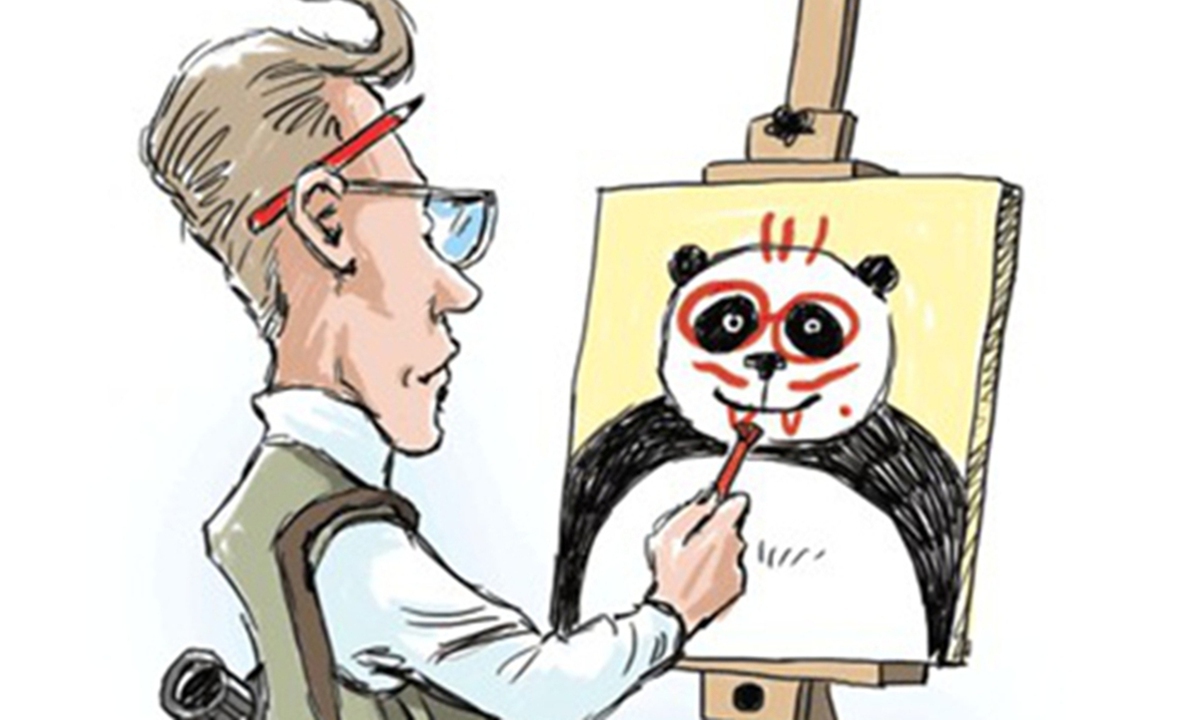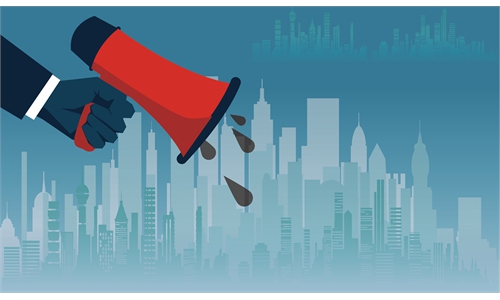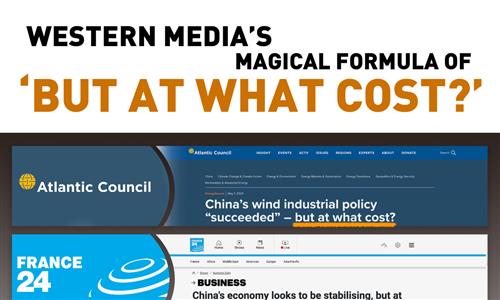Double standards displayed in The Economist’s covers are typical Western-style propaganda

Illustration: Liu Rui/GT
What if China contributed to carbon emissions? That means China is "the world's worst polluter" and poses a threat to the world. Then, according to this logic, China should develop green technologies. But wait a minute. China's development of electric vehicles is also deemed as an "onslaught" of the world.
Two covers of the British magazine The Economist in 2013 and 2024 have vividly shown the "double standards" of the magazine. In 2013, the cover with a headline "The world's most polluter" portrayed China's carbon emissions as a global threat. Now, with China's rapid development of electric vehicles, the cover with a headline "China's EV onslaught" depicts cars crashing into the Earth, vividly portraying Western fears, despite the fact that the content of the article differs from what the cover suggests. Regardless of China's actions, it is consistently portrayed as a threat. This is typical Western-style propaganda.
Behind Western media's double standards lies the West's long-held condescending mentality and cultural inertia. In short, it is about "Western-centrism," which asserts that Western values and systems are the sole measure of human civilization. Based on this theory, Western imperialism naturally assumes the role of an all-powerful "god" that can dictate everything, while other countries can only conform to their own preferences.
Western imperialism and hegemony have been pervasive for centuries, significantly impacting the development of global society and continuing to influence the world today. When China, one of the largest non-Western countries, chooses a development path that diverges from that of the West, it becomes an eyesore of Western hegemons. In order to maintain its hegemony and leadership, the West resorts to attacking, containing, and smearing China, employing double standards as one of its tactics.
When China was in its developing stage, the West spared no effort to discredit China's carbon emissions. However, as China gradually emerged and took on major responsibilities to reduce carbon emissions and develop green energy, the West has become both fearful and panicked. Nie Shujiang, an associate professor at the Guangming School of Journalism and Communication of China University of Political Science and Law, believes that this fear and panic stem from the West's inability to face its own decline and its inability to adapt to China's leading status in various fields including the EV area. This is evident in the unprofessionalism displayed by Western media when reporting on China.
For instance, in 2020 when the pandemic swept across the world, China implemented restrictive measures to prevent the spread of the coronavirus. The New York Times claimed that these measures came at a great cost to people's personal liberties. However, when Italy followed suit and implemented lockdowns in certain areas, the narrative shifted to acknowledging that restrictive clampdowns may be necessary to contain and defeat the virus.
The game of words played by Western media reminds people of another trick they have employed - the "at what cost" type. Look at the headlines of some Western media outlets - "China has avoided the grim US Covid toll. But at what cost?" from the Guardian, "China's economy looks to be stabilising, but at what cost?" from France 24, and "China is getting smarter - but at what cost?" from the BBC.
Xu Liang, an associate professor at the School of International Relations of Beijing International Studies University, calls such reporting style of Western media on China "narrative of reversal." On one hand, they begrudgingly acknowledge China's achievements, but on the other hand, they use a narrative of reversal to question the sustainability of the Chinese approach. Nonetheless, regardless of the tactics employed by Western media, they cannot prevent the decline of the West or alter the fact that China is on the rise.



